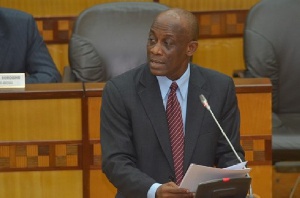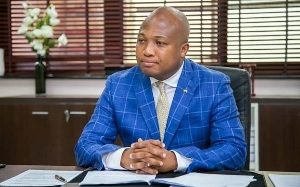The provision of subsidies by government has reduced sharply as the 2016 supplementary budget presented by the Finance Minister indicates that only GHC50 million was spent on electricity, water and petroleum subsidies in 2014 compared with GHC473.3 million in 2014.
This, experts suspect could be attributable to the bailout programme entered between Ghana and the International Monetary Fund (IMF) in 2014 to bring stability into the Ghanaian economy.
The main condition in the programme was the reduction in government financing of subsidies and expenditure.
In real terms, consumers are now paying fully for fuel while enjoying some subsidies on electricity and water.
According to the budget statement, total interest payments amounted to GHC9.07 billion against a budget target of GH¢9.34 billion in 2015. The outturn was 2.9 percent lower than the budget target and 28.2 percent higher than the outturn in 2014.
The Finance Minister, Seth Tekper said the outturn was mainly on account of less borrowing domestically than had been anticipated. Although domestic interest payments were below target, it constituted 80.6 percent of the total interest payments in 2015 and 19.7 percent higher than the outturn in 2014.
Total capital expenditure amounted to GHC7.13 billion in 2015, about 5.1 per cent of GDP and 11.4 percent higher than the budget target of GHC6.4 billion.
The higher outturn for capital spending was on account of higher foreign-financed capital expenditure driven mainly by the disbursement of more project loans than anticipated.
Meanwhile, based on the revenue and expenditure performance, the fiscal balance on cash basis registered a deficit of GHC8.76 billion in 2015, 6.3 percent of GDP. This was an improvement over the target of GHC9.77 billion, 7.3 percent of GDP, and significantly lower than the deficit of GHC11.55 billion, 10.2 percent of GDP for the same period in 2014.
According to the Finance Minister, the deficit of GHC8.76 billion in 2015 was financed mainly from foreign sources, with total foreign financing amounting to GH¢5.87 billion, including GHC3.61 billion from the issue of the 2015 Eurobond. Foreign financing constituted 67.1 percent of total financing.
Net Domestic Financing (NDF) of the Budget however amounted to GHC2.88 billion in 2015 and constituted 32.9 per cent of total financing as a result of the issuance of the 2015 Eurobond which substituted domestic borrowing significantly.
Also, the primary balance improved significantly to register a surplus of 0.2 percent of GDP. This is compared favourably to a deficit target of 0.3 percent of GDP in 2015 and a deficit of 3.9 percent of GDP during the same period in 2014.
Business News of Thursday, 28 July 2016
Source: The Finder
Government subsidies drop drastically
Entertainment
















